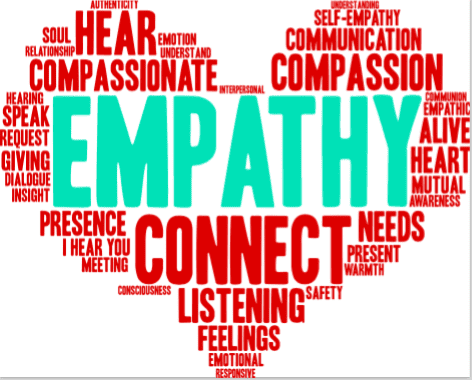I Hope Things Get Better For You: The Importance of Empathy in Compliance Reporting


Contributed by: Amanda Hosenfeld, Learning and Development Coordinator
As call center agents, we notate and report on each call as if it were absolute fact, as if the details expressed to us are given to us free from opinion or extrapolation. That can be difficult when there is an emotional investment in both the telling of the story and the resolution of the issue.
Our position at ComplianceLine is to show the most amount of empathy without impacting the integrity of a fair investigation in the compliance office.
The bottom line:
Individuals are more likely to give additional details if they feel like you share their concerns on an emotional level. The trick is, though, that we have no way of knowing whether a caller is telling the truth. He or she may be extrapolating in order to appear more believable, to garner feelings from the agent in order to influence the investigation.
This begs the question: how do we show empathy without validating their feelings.
The answer is phrasing. What follows is a sampling of phrasing agents can use to enhance empathy without validating concerns.
Phrasing Alternatives
Say this: I hope things get better for you.
Not this: I hope the manager is reprimanded/the doctor is fired/insert an affirmation which mirrors the call topic here.
Why: Ultimately, the caller is feeling some type of way, otherwise they wouldn’t have called. We do hope that things get better, regardless of whether the claims are true or false.
Say this: That sounds like a tough situation.
Not this: That’s crazy/That sounds horrible/insert appropriate outrage or discontent here.
Why: Again, the caller needs some positive words, but we can’t corroborate or validate a story in any capacity. And the situation is probably tough for the caller.
Say this: I hear what you are saying.
Not this: I understand what you are saying
Why: Unless you truly understand, have gone through the same thing, and can completely identify, using “understand” can open the door to challenges or questions, especially from an irate caller.
Say this: Thank you for calling and reporting your concern.
Not this: You are correct calling us.
Why: We have no way of knowing if the details the caller is giving are true, so we have to be careful about affirming what they are saying or stating that they are firmly right or firmly wrong.
Compliance reporting and empathy are a decidedly healthy combination, one lending itself seamlessly to the other. In phrasing, we can make sure we are showing appropriate empathy while continuing to focus on facts in order to present an accurate report to the compliance office.





































